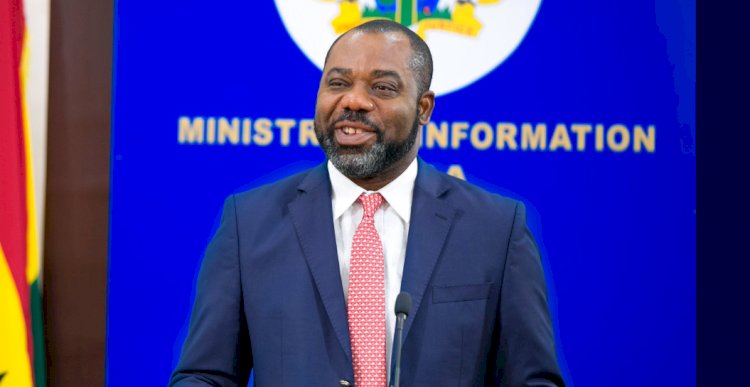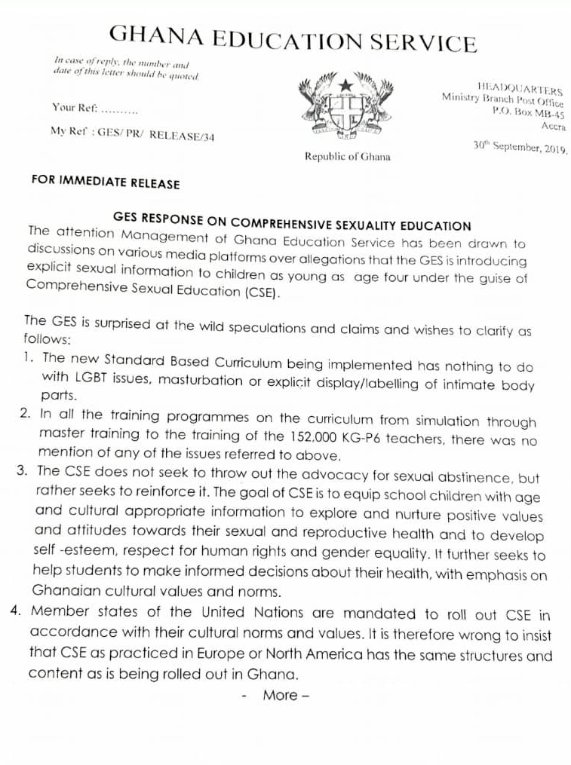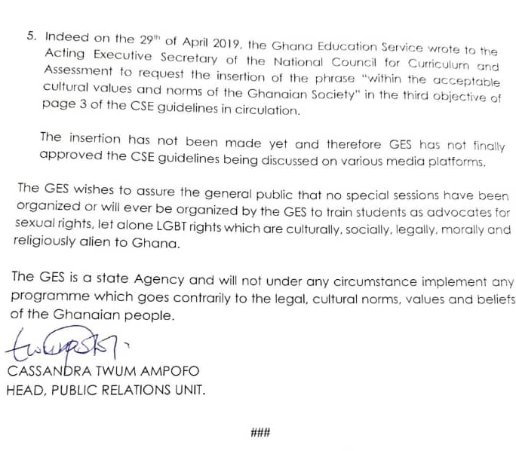Ghana Education Service DENY approving Comprehensive Sexual Education (CSE) Curriculum for Schools
According to Dr. Opoku Prempeh, “the nation should rest assured that the government and the ministry will not compromise our societal values in the delivery of quality education”.

The Minister of Education, Dr. Matthew Opoku Prempeh says the Curriculum framework endorsed by the National Council for Curriculum Assessment (NaCCA) is yet to approve the Comprehensive Sexual Education (CSE) for the various schools.
News broke on Monday that the Ghana Education Service will add the Comprehensive Sexual Education syllabus (CSE) next year in the Basic School’s Curriculum under the approval of the Ghanaian government. The United Nations Educational, Scientific and Cultural Organization (UNESCO) launched the CSE programme this year in a bid to empower adolescents and young people to deepen their scope of existing activities to attain a Comprehensive Sexuality Education (CSE).
According to Dr. Opoku Prempeh, “the nation should rest assured that the government and the ministry will not compromise our societal values in the delivery of quality education”.
The news are received lots of criticisms from religious leaders and concerned citizens defining the CSE in basic schools as a platform to marry the LGBT (Lesbians, Gays, Bisexuals and Transgender) into the various institutions in the country. He assured the representatives of the faith-based organizations on the governing council of both the GES and NaCCA to help ensure that the curriculum was in line with the value and norms of the country.
The Ministry on Monday released a press statement signed by Casandra Twum-Ampofo, Head of Public Realtions Unit to deny any association the Standard Based Curriculum has with LGBT issues.


Addressing the press yesterday, he revealed that the CSE is not part of the syllabus approved for Kindergarten (KG) to Primary six by the NaCCA convincing that “the fact that the UNFPA or UNESCO or UNICEF supports comprehensive sexuality education, and that in other countries there are certain rights that are legal does not mean that those rights are legal in Ghana, and the fact that we all belong to UNESCO does not mean that when UNESCO promotes an agenda, Ghana must carry it through 100 per cent,”
“The curriculum framework (KG to Primary Six) approved by the National Council for Curriculum Assessment (NaCCA) for use in the development of school curriculum, which has been approved by the Cabinet, does not include the CSE,” he said.
“In the document that has been accepted that we are championing, that we are using in schools, I wish you could point out where we have documented how to go about the teaching of CSE in the teacher resource packs that we have distributed to over 152,000 teachers.
“So I can emphasize, and I am categorical and insisting, that the document or those purported documents going round on comprehensive sexuality education are not owned by the Ghana government or the Ministry of Education and are not what are being implemented in our schools,” Dr Prempeh insisted.
The policy has been implemented in Eswatini (formerly Swaziland), Malawi, Tanzania, Zambia and Zimbabwe for effective delivery of quality comprehensive sexuality programmes.





































